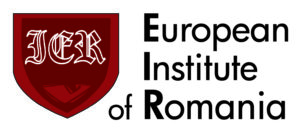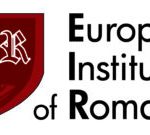Study No. 1. Consolidation of a resilient European economy on the horizon of 2040. Romania’s integration into European value chains
The study examines the consequences of the last two major crises (the COVID-19 pandemic and the Russian aggression in Ukraine) on the European economy and traces how the economic and industrial policy of the European Union (EU) has changed in response to these two events. The research presents the general state of the European as well as Romanian economy, through the lens of the effects that these two shocks have had. The analysis is made within the framework of a shifting dynamic within the global economy. This study covers the period from 2020 to 2023, with the research focusing on the latest bibliographic sources and available data.
Study No. 2. European integration process in the Western Balkans. Perspectives and orientations of Romania
In 2023, the topic of the European Union’s enlargement has re-emerged as a critical concern for the EU. This study delves into the latest developments in the Western Balkans’ European integration process from the Romanian perspective. Due to Romania’s vested interest in expanding the European Union to the Western Balkans and the political and economic support it aims to provide, understanding the dynamics and mechanisms of European integration is exceptionally significant. Furthermore, given the challenging geopolitical backdrop of Russia’s ongoing war in Ukraine and the escalating tensions among the Western Balkan countries, the importance and relevance of this study are undeniable.
Study No. 3. The role of regional cooperation mechanisms in the current geopolitical context – opportunities and challenges for Romania
The study examines Romania’s opportunities and challenges derived from its participation in a series of regional cooperation mechanisms. Both a “conceptual decoding” and a “dynamic mapping” of the factual in-the-field realities are being proposed, whose representations are nevertheless affected, despite all of the desired detachment, by value judgments. The analysis equally features both an explicatory/critical stake and a predictable/creative one, while observing various possible/plausible/probable/preferable evolutions. Thus, both determinants of regional cooperation – the most important of which being the interdependence, the pressure from abroad, and the common identity –, and their consequences in several areas – such as the economy, security, and diplomacy – are being taken into consideration.
Authors: Study No. 1: Daniela Staicu, Associate assistant and researcher at the Faculty of Business Administration in Foreign Languages, the Bucharest University of Economic Studies; Eugenia Gușilov, founding director of Romania’s Energy Center-ROEC;
Study No.2: Miruna Butnaru-Troncotă, Researcher specialised in the European Union foreign and security policy; Cristina Bărăgănescu, European Union’s foreign relations specialist; Marius Ghincea, Ph.D. Researcher at the European University Institute; Radu-Vladimir Rauta, PhD candidate at the National University of Political Studies and Public Administration, Researcher at the Centre of European Studies in the DIREI-SNSPA;
Study No.3: Octavian-Dragomir Jora, Professor, Ph.D., Habil., at the Faculty of International Business and Economics, the Bucharest University of Economic Studies; Marius-Cristian Neacsu, Associated Professor, Ph.D., at the Bucharest University of Economic Studies; Cezar Teclean, Associate researcher at the Bucharest University of Economic Studies.
This text has originally been published on the European Institute of Romania.



